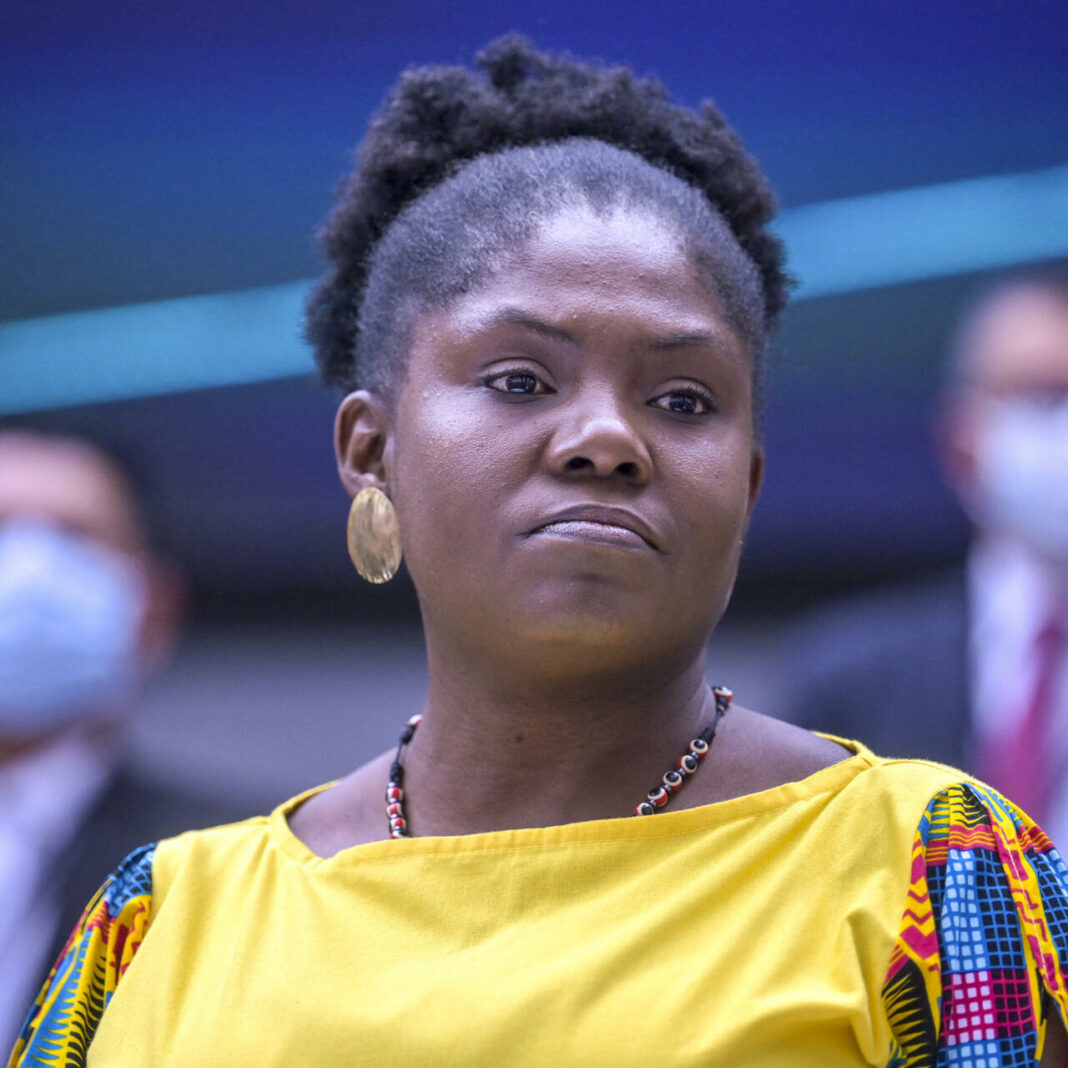For the first time, Colombia will have a black woman vice president, as voters decide Sunday between a pair of rival candidates aiming to make history in the South American nation.
Colombians head to the polls for a run-off to choose their new president, either leftist former guerrilla Gustavo Petro or eccentric millionaire construction mogul Rodolfo Hernandez.
Both men have named a woman running mate with African roots.
Environmentalist Francia Marquez, 40, is running alongside Petro, with Hernandez having chosen conservative academic Marelen Castillo, 53.
Whichever one replaces outgoing Vice President Marta Lucia Ramirez — the first woman to hold the position — will break new ground as the first person of African descent named to the post.
“In political, symbolic, and cultural terms it is very important because Colombia is a country with a lot of racism,” Cristina Echeverri, an analyst from the National University, told AFP.
Just over nine percent of Colombia’s 50 million people identify as black but few, especially women, manage to reach positions of power.
There is only one black person in the current cabinet and just two out of almost 300 members of Congress.
The threatened activist
Marquez was born into a poor family in the southwestern department of Cauca — a region ravaged by violence linked to armed groups battling over drug trafficking and illegal mining resources.
A single mother at just 16, she fled her native region following threats and went to work as a maid while studying law.
But she returned home to take part in local politics and can often be seen frequenting public squares in her African print clothing, defending the marginalized.
Marquez has made headlines with her feminist, environmentalist, and leftist speeches, but she has also made enemies.
She survived an attack in 2019 when gunmen tried to kill her due to her defence of the region’s water resources in the face of encroachment by mining companies.
The year before that she was awarded the prestigious Goldman environmental prize.
“Us nobodies, those whose humanity is not recognized, those whose rights are not recognized in this country, we’re standing up to change history, to occupy politics,” Marquez told AFP in March.
In that month’s left-wing primaries, Marquez finished second behind Petro, who duly named her his running mate.
She represents “the environment, the ethnic, the racial, the youth, the feminist” and is thus “oxygenating traditional politics,” said Echeverri.
But her rise has awakened underlying bigotry, with the Racial Discrimination Observatory at Los Andes University recording more than 1,000 racial attacks against Marquez since April.
The face to ‘support women’
The daughter of a black dressmaker and a civil servant, Castillo was born in a poor neighbourhood of Cali.
She studied biology, chemistry and industrial engineering before taking a doctorate at Nova Southeastern University in Florida.
A month ago, maverick outsider Hernandez still had not announced who his running mate would be.
When the 77-year-old businessman advertised he was looking for “an Afro-descendant woman from the Pacific coast,” university director Castillo sent her CV.
“Us perfect strangers are the most numerous,” she quipped.
Although she identifies as being of African descent, mother-of-two Castillo says she has never faced racial discrimination and avoids the topic in interviews.
She’s had her work cut out on the campaign trail mitigating the damage done by Hernandez’s gaffes, such as when he said women “ideally” should bring up children and take care of the home.
“I will be the face that will support women,” said Castillo, who is Catholic.
She has also embraced the anti-corruption message trumpeted by Hernandez, who has his own legal troubles.
Hernandez is under investigation for an allegedly irregular contract signed while he was mayor of Bucaramanga from 2016 to 2019.
Unknown a month ago, Castillo could realistically find herself promoted to the presidency if Hernandez wins but is then stripped of his position for corruption.
Whoever the new vice president is, though, she will have “a critical and pertinent role in the exercise of power,” said Diego Lucumi, an expert in racial issues at the Los Andes University.
That in itself is a big step for black women in Colombia.





